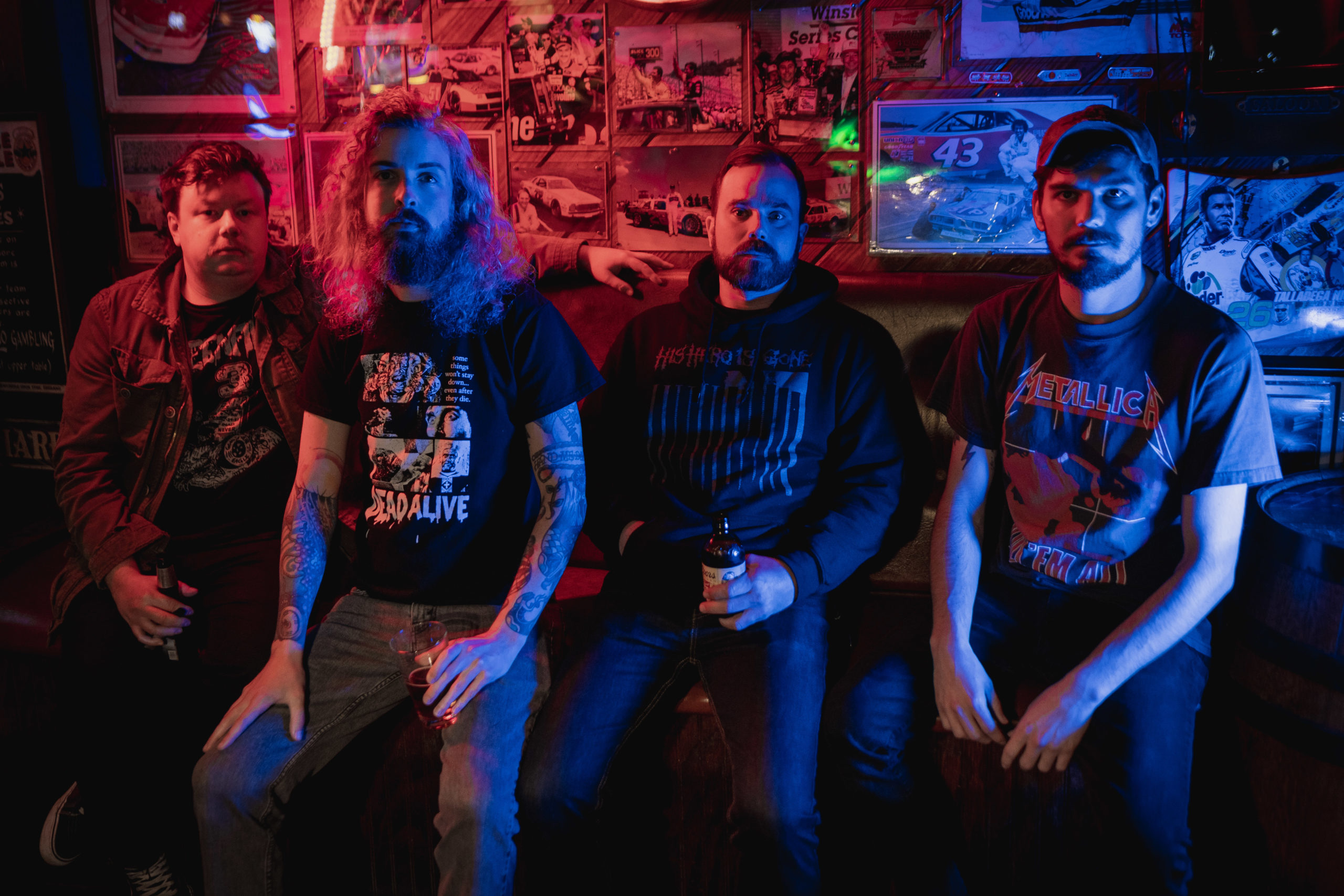
The ultimate goal of a songwriter should be “cinematic” music—the sort that sweeps listeners to another place and time, another mind. As they would while watching a movie, listeners should feel the full spectrum of emotions, the torque of conflict, the catharsis of resolution, even if the story is delivered solely through melody. The secret, however, is taking listeners somewhere—beyond the familiar and mundane—never seen or felt before. This is what Charlotte, North Carolina’s Cosmic Reaper do so well—not simply churn out thick, riff-leaden doom metal, but lure the listener into their heads to places beyond their imagination.
Released in 2020 Cosmic Reaper’s self-titled full length is full of deep, wandering grooves—craters that are easy to slide into but impossible to climb out of, dismal caverns that echo endlessly, dustbowl plains haunted by the remains of failed civilizations. On “Stellar Death,” the guitar groove is reminiscent of a classic psychedelic riff; dense with stony distortion and a steady, plodding beat, the song feels fresh and menacing. On other songs, like “Infrasonic,” the sinister ambience comes from singer Thad Collis’s howling tenor—deep and distant, a disembodied voice calling from just beyond the horizon.
“There’s a song called ‘Stellar Death’ about an astronaut being sucked into a black hole,” says bassist Garrett Garlington, “which I believe is the black hole of destruction being described in the song ‘Planet Eater.’ I think it’s this subject matter that lends the ‘cosmic’ portion to our name.”
The band’s self-titled album follows their 2019 debut Demon Dance, a four-song EP that introduces a rawer version of Cosmic Reaper. “The EP had laid a foundation for our general sound,” Garlington explains, “but we wanted the full length to take everything up a notch. Darker, heavier, groovier with overall more bells and whistles.”
After recording their self-titled full-length in fall of 2020 at The Parliament House with Jacob Beeson, they knew the final product was a step forward, tighter but more enormous—and worthy of proper release by a label. “We’re kind of living in a golden age for this genre currently,” Garlington says, “and there’s a lot of great labels around during this resurgence of ‘70s influenced underground rock. Heavy Psych Sounds was one of the handful of labels I sent it too and they graciously invited us to join the roster.”
Though Cosmic Reaper does borrow from rock ’n’ roll’s bygone eras, their music also stands apart from—and builds on—what has come before. Certainly, some of this comes from their musical control, the precise density of their guitar tone, the simple and solid drum beats. The rest comes from their lyrics, which draw from a darker, murkier creative well than others in their crowded genre. “I think the almost all of our songs in some way touch on supernatural and sci-fi elements,” says Garlington. “We’re all big movie guys, so I think there’s this cinematic element that’s definitely there. Even the cover art for our self-titled album harkens back to vintage horror film covers.”
When music critics call music “cinematic,” it can come off as pretentious and heavy-handed, but it’s a sign that songwriters are doing something right. The cinematic quality of Cosmic Reaper’s music is part of what sets this band apart, but is really only a taste of—a trailer for—the intensity to come.
Bio by Dane Erbach
back to artists